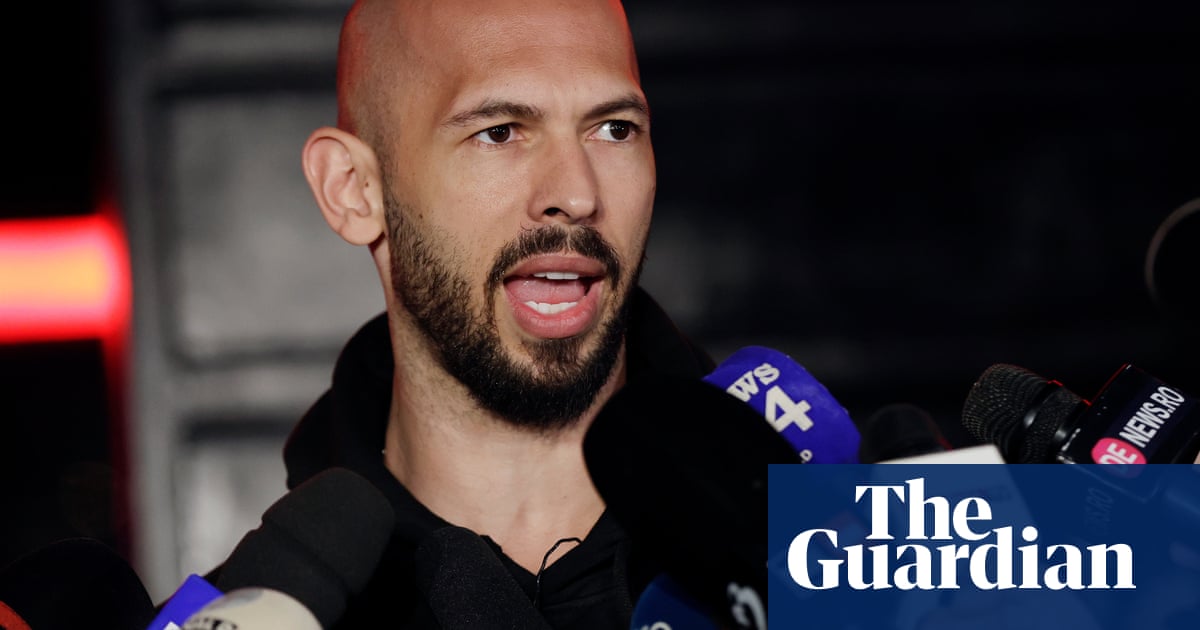Vanuatu is not planning to revoke the citizenship ofAndrew Tate, with a government spokesperson confirming that the influencer remains a Vanuatu citizen, and the government is not taking any steps to reverse that.
This week investigative outlet, the Organized Crime and Corruption Reporting Project (OCCRP)revealed that Tate obtained Vanuatu citizenshiparound the time of his 2022 arrest by Romanian authorities on charges including rape and human trafficking.
In the wake of the report,Vanuatugovernment spokesperson Kiery Manassah said the South Pacific country was looking to rescind Tate’s citizenship. However, on Thursday he told the Guardian that the country’s citizenship office had subsequently reviewed Tate’s documents and found no fault with them.
“They’ve found the files and according to the records, at the time when Mr Tate was granted the citizenship, he was cleared by Interpol, and the UK, so that was the decision at the time,” he said.
The review, he said, meant the government was not currently taking any further steps to revoke Tate’s citizenship.
“The chairman [of the citizenship office] confirms that the way it is at the moment he [Tate] remains a citizen and for Vanuatu there are no further actions to be taken,” he said.
Manassah said that Tate would never have been granted citizenship if the government had been aware of the allegations he faced at the time.
“If the government had been aware of this at the start, and our processes were working, we should have not allowed him in the first place,” he said, adding that: “We can’t just go back and revoke based on information that is discovered later.”
Tate, a 38-year-old misogynist influencer reportedly secured a “golden passport” through a citizenship-by-investment programme that allows foreign nationals to buy citizenship for $130,000 (£96,000), according to the OCCRP andIntelligence Online.
In 2021 the Guardian detailed ina months-long investigationhow Vanuatu sold passports – and with them visa-free access to the UK and EU – tothousands of individuals. Buyers included people linked to sanctions, or facing serious allegations, or with warrants out for their arrest.
Acknowledging that Vanuatu’s citizenship program has a “very bad reputation overseas” Manassah said the government would strengthen its “due diligence processes so that such instances do not happen again”.
Tate, a former professional kickboxer who has amassed more than 10 million followers on X, runs an online academy where he says he teaches young men how to get rich and attract women.
He was granted citizenship to Vanuatu in December 2022, the OCCRP reported, the same month that he and his brother Tristan, 36, were arrested by Romanian authorities on charges of human trafficking and forming an organised crime group.Andrew Tatewas also accused of rape.
The Tate brothers, who grew up in Luton in the UK, have been under criminal investigation in Romania since April 2022.
Tate’s spokesperson declined to comment to the Guardian earlier this week on the reports of his Vanuatu citizenship.
According to Manassah, Tate’s citizenship could be revoked if he was found guilty.
“If he has been convicted then definitely measures to revoke his citizenship, that can be determined later. That would be something the government could consider in future,” he said.
For now he said: “New regulations have been signed off by the prime minister and the current chairman under [citizenship commissioner] Charles Maniel, is trying to ensure that similar incidents do not happen again and that we our improve our due diligence processes.”
The Tate brothers deny the allegations they face in Romania, and an appeals court said in December that a human trafficking case could not proceed because of legal and procedural irregularities. The case has been sent back to prosecutors.
The pair are due to be extradited to the UK after the conclusion of proceedings in Romania.UK prosecutors confirmed last weekthey had authorised 10 charges against Andrew Tate, including rape, actual bodily harm, human trafficking and controlling prostitution for gain, and 11 charges against Tristan Tate, including rape, actual bodily harm and human trafficking. They deny the charges.
The brothers would return to Britain to defend themselves, their UK lawyer said last week.
